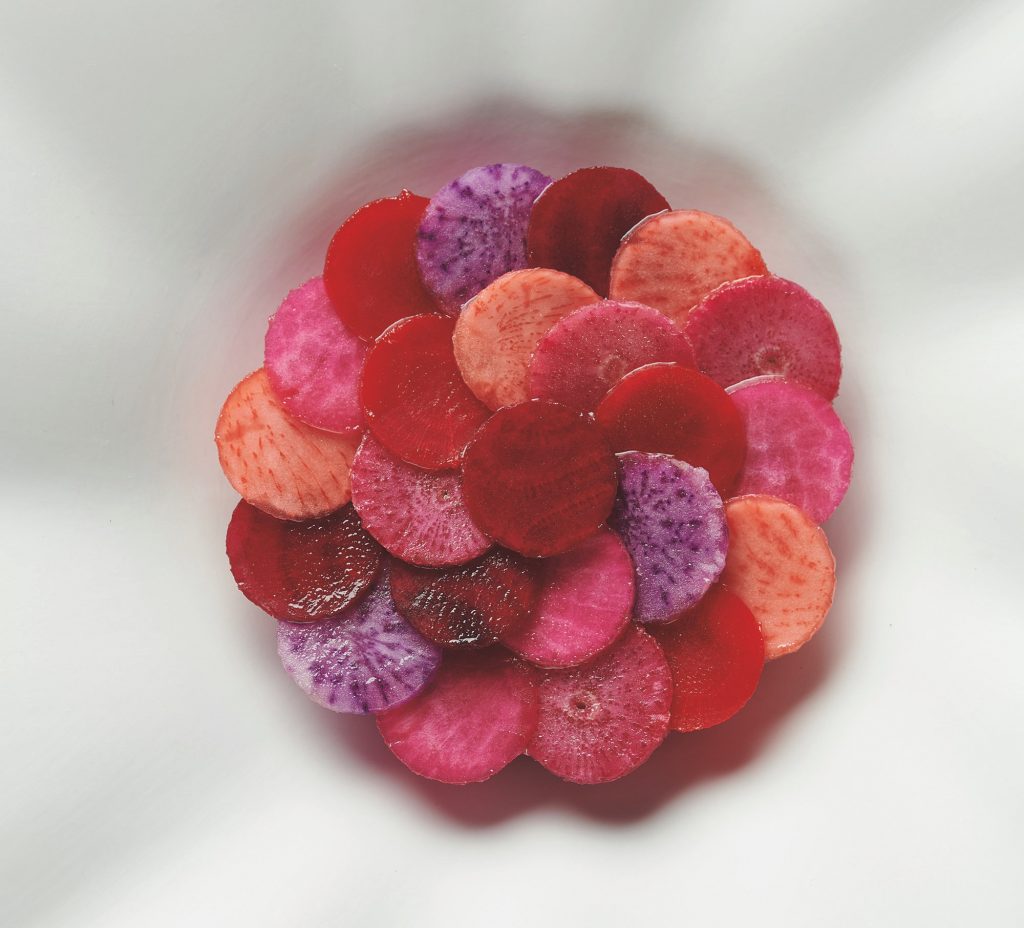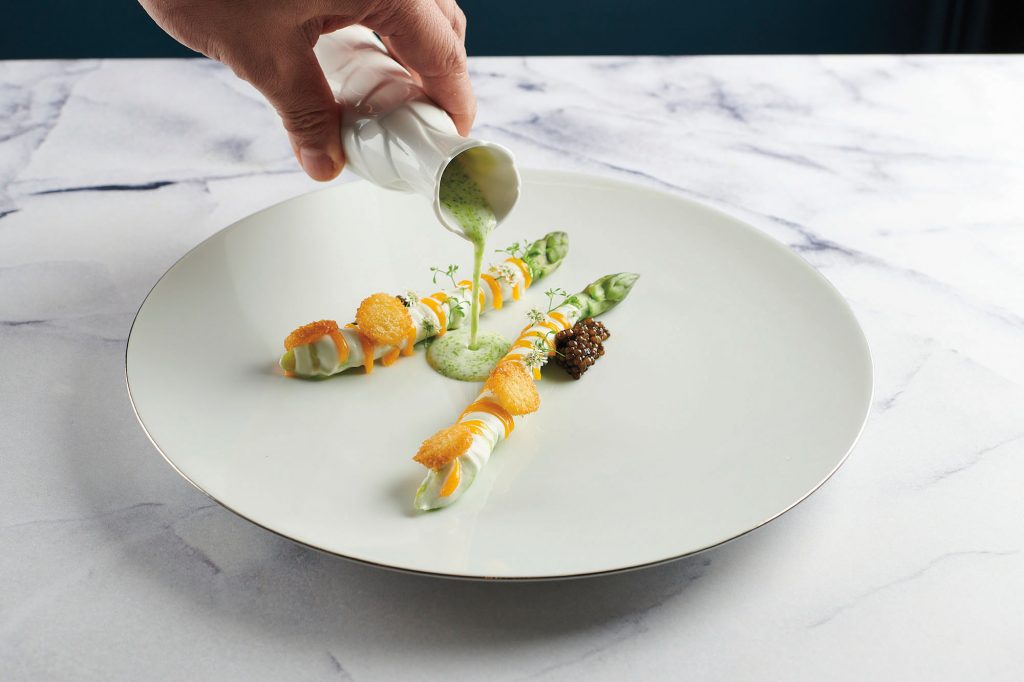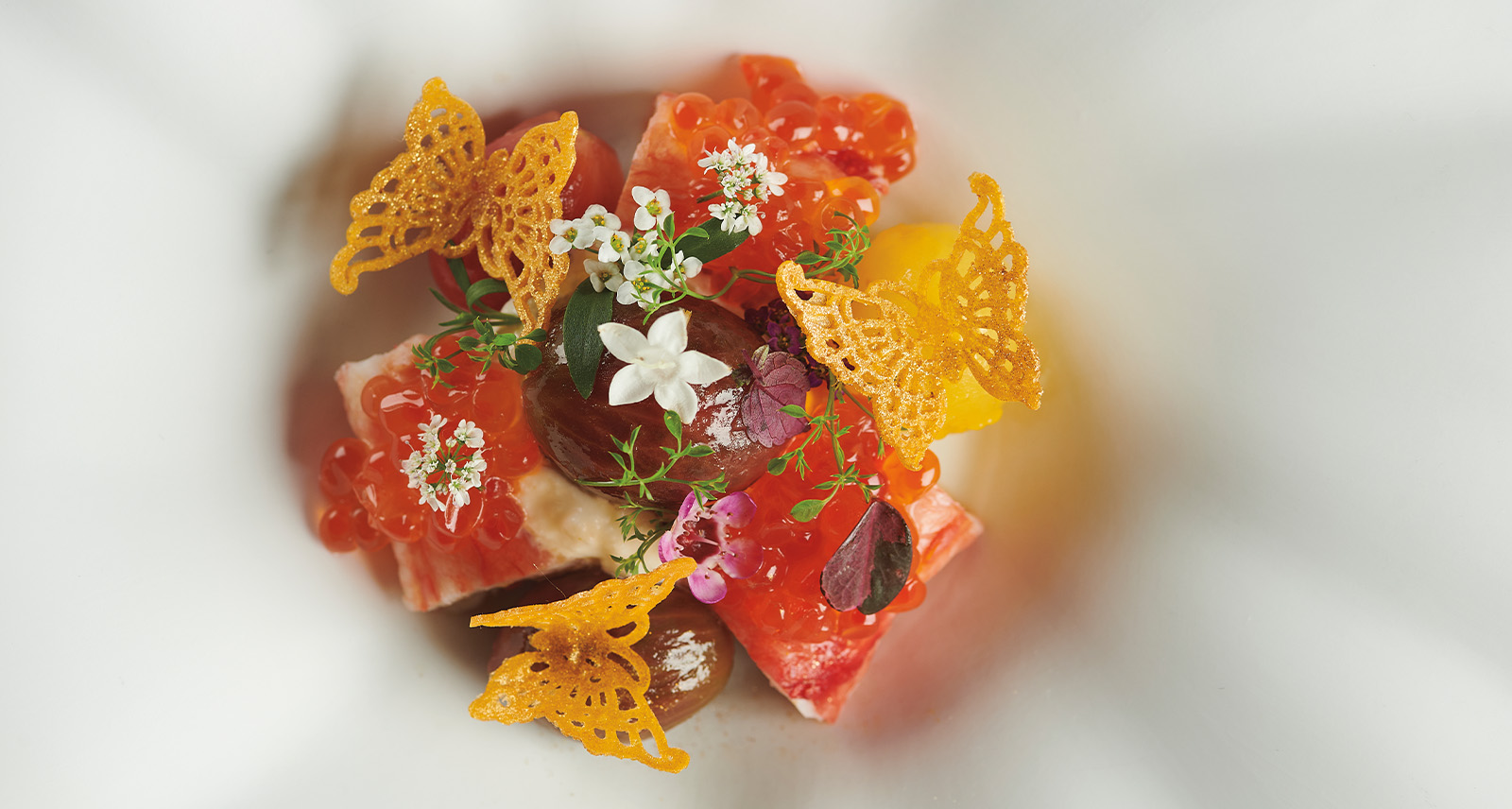View From the Top: In Interview With Buddha Lo
Acclaimed chef and Top Chef champion Buddha Lo has an impressive culinary pedigree.
Raised in Australia by restaurateur parents, he spent his formative years working as an apprentice in a five-star hotel and resort, before moving to London, England, where he worked under the great Clare Smyth at the three-Michelin-starred Restaurant Gordon Ramsay. At HUSO, the caviar bar on New York’s Madison Avenue where he now serves as executive chef, Lo’s boundary-pushing cuisine shimmers with exquisite subtlety: hamachi with Tokyo turnip and sauce vin jaune, lobster with carrot and laksa, pumpkin pie millefeuille. “Every day, I get out of bed and think, what’s the next challenge? What can I do better? How can I push myself?” Lo says. “You have one life. What do you want to do with it?”

But his feted cooking wasn’t always haute cuisine. Lo started simple — and young. As a child, he spent most of his free time hanging around the back of the Chinese restaurant his parents ran in small-town Port Douglas, Australia, playing video games and messing around. Bored one slow afternoon, he went to the kitchen to ask his mother if there was anything he could do to help out. She handed him a side of chili and told him to bring it to a diner out front. “I walked it over to him and he was totally amazed, as you would be if a little kid came and brought you something,” Lo recalls. “I remember thinking, ‘Wow, I made someone happy.’ I loved that feeling. Throughout my career, I’ve always been searching for that same ‘wow’ moment.”
His parents, impressed by how the young Lo applied himself, put him to work, which he took to immediately. Soon enough, he was upgraded from diligent busboy to aspiring chef: “My dad told me to come into the kitchen, where he was making a Chinese omelette. He told me, ‘Why don’t you flip it?’ I was 12 years old at the time. I was like, ‘That’s not going to happen,’ ” he says. “But I flipped the omelette — and it was perfect, first try. That was the turning point of my life. It was like the flip of a coin, but it was the flip of an omelette. Ever since then, I’ve wanted to be in the kitchen.”
After a few more years cooking Chinese food under the direction of his parents, Lo began a high school apprenticeship at a luxury resort and hotel. The experience, he explains, was invaluable. “I learned how to make a sandwich, I learned how to fry an egg, I learned how to make a curry. I worked in the pastry section. I did banquet functions for 300 to 400 guests. I was put in all these different situations that people in normal restaurants wouldn’t be put in. You have to learn to walk before you can run, and that was the best place to learn how to walk. If someone asked me to do a buffet now, I’d know how. The hotel showed me everything.” These basics are a far cry from the cutting-edge dishes Lo serves up day to day. But they established the fundamentals on which he built his innovative career.

The versatility Lo gleaned from his years in the hotel kitchen certainly came in handy last winter, when he was invited to compete on Food Network’s hit competitive cooking show Top Chef. On the competition floor, anything goes: contestants are put to the test with challenges that range from decadent single-plate dinners to expansive outdoor markets for hundreds of guests. Lo’s approach frequently pushed his abilities to the limit, and part of the thrill of watching him cook was in waiting with bated breath to see if he could really execute his ambitious visions. For Lo, these calculated risks were always part of the plan.
“I wanted to show the judges and the viewers that I deserved to win,” Lo says. “It was never my intention to float through to the finale then make a really good dinner at the end and hopefully win. To be the best, you need to beat the best. You need to do your best every time. You can’t simply scrape through to the other side.” The dishes Lo presented on Top Chef frequently awed the judges with their complexity and sophistication — with the level of effort that he very clearly brought to bear on each plate. That effort distinguished him. “I gave it my all on every single challenge. At the end of the day, you have to make something you’d be happy to be eliminated on, or else you’re going to regret it for the rest of your life.”
Lo’s enterprising zeal paid off — in the form of a victory that made him the season 19 winner, an honour he still can’t quite get used to. “Sometimes I forget that I even did it and forget that I actually won,” he says. “But things have changed dramatically. There are NBA players now who want to get a picture with me — they want my photo. I’m like, ‘Are you serious?’ ” His transition to becoming a kind of celebrity chef has been disorienting at times, but it hasn’t distracted Lo from his ultimate culinary ambitions. At the end of the day, he’s still striving to make great food and push boundaries. “I try to remember that I have to stay humble,” he says, “and focus on the next challenges in my life.”










